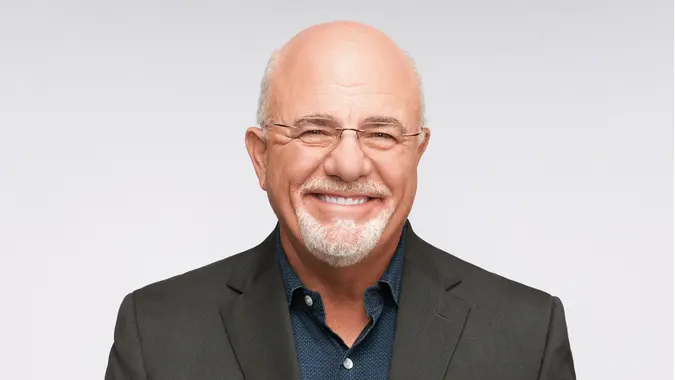Want To Buy a House? Dave Ramsey Says This Is How To Tell Whether You’re Ready

Commitment to Our Readers
GOBankingRates' editorial team is committed to bringing you unbiased reviews and information. We use data-driven methodologies to evaluate financial products and services - our reviews and ratings are not influenced by advertisers. You can read more about our editorial guidelines and our products and services review methodology.

20 Years
Helping You Live Richer

Reviewed
by Experts

Trusted by
Millions of Readers
How do you know you’re ready for homeownership? In an episode of “The Ramsey Show,” personal finance experts Dave Ramsey and Rachel Cruze answer a fan of the show’s question about whether they should purchase a house.
Buying a home is a significant expense and investment in your future. There are certain key signs that indicate you are ready to make this move. Here’s how to tell whether you’re ready to buy a house.
Are You Debt Free With a Full Emergency Fund?
According to Cruze, those who want to own and buy a home need to be completely debt free and have an emergency fund saved in the bank. Being debt free means having no debt of any kind. The emergency fund you have saved should have at least three to six months’ worth of expenses in it.
If you’re still paying off debt or working to build up your emergency fund, prioritize reaching these financial goals before shopping for a home.
Can You Put Down 20% on the House?
While a blog post on Ramsey Solutions does recommend putting 100% down — i.e., paying all cash — to buy a home, this isn’t always possible for every potential buyer.
If you can’t quite reach 100%, set 20% as your down payment. This percentage keeps you from having to pay for private mortgage insurance (PMI). First-time buyers can still put 5% to 10% as their down payments, but 20% is ideal to avoid paying for PMI.
Can You Afford Monthly House Payments?
Buyers will know they are able to afford homes if they can afford monthly payments, including property taxes and homeowners insurance, and home maintenance.
A rule of thumb for monthly house payments, according to Ramsey Solutions: Your payment should not exceed 25% of your take-home pay. Having too much income tied up in home expenses means buyers become house poor and cannot save for other financial goals.
Can You Pay for Closing Costs?
Closing costs cover items like a home inspection, loan origination fee, appraisal, prepaid property taxes and mortgage insurance.
You’ll receive a loan estimate from your lender that provides a better look at closing costs. Ramsey Solutions recommends saving 3% to 4% to cover the buyer’s portion of closing costs. If you’re purchasing a house for $300,000, for example, your closing costs are estimated to be anywhere between $9,000 and $12,000.
Do You Have Cash Saved for Moving Expenses?
Moving takes a lot of time, energy and money.
You should be able to set aside enough money to pay for moving expenses, including packing materials, truck rentals or assistance from movers, plus utility deposits and any upgrades such as painting, organizing a closet or buying new furniture or appliances.
 Written by
Written by  Edited by
Edited by 

























